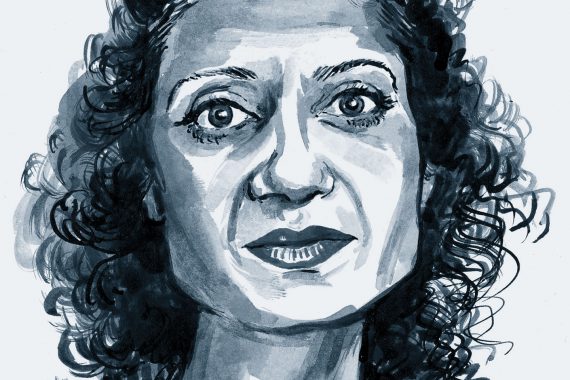She came in clutching her phone in tears, and I wondered why she was trying to retrieve her Facebook feed. She pointed at a meme her friend had posted:
‘October is pregnancy loss awareness month. Remembering all the babies gone to heaven.’
She told me how she sat heavy hearted, hovering over the post, uncertain if she should use the ‘like’ or ‘sad’ button. Eventually, she decided to do nothing and scroll on.
Sarah is one of the 16 women per thousand in England and Wales who have lost a baby, but are made to feel they cannot discuss it, because the loss was self-inflicted. There are no coloured ribbons in remembrance of their ‘angel babies’ and no 5K runs to raise money for their cause. At best, they are ignored and unable to speak of their grief. At worst, they are criminalised and punished.
Abortion continues to dominate the headlines, even though last month marked the 50th anniversary of its legalisation in the UK. (This has personal relevance to me as I was conceived only a week after this groundbreaking act.) However, Professor Lesley Regan, president of the Royal College of Obstetricians and Gynaecologists, recently highlighted how abortions are still viewed differently from other procedures. Her sentiments were overshadowed by her unfortunate use of bunion surgery as an example of how easy abortions should be, yet it seems extraordinary that 50 years after this Act of Parliament, we still require the signature of two medical professionals to carry out a first-trimester abortion.
This does nothing but add to the stigma women already feel. In addition, health professionals are still allowed to distance themselves from the process on the grounds of conscientious objection. Imagine if a doctor could conscientiously object to gender dysphoria or same-sex infertility treatments? I’m sure some would if allowed, but equality laws rightfully prevent such discrimination. Yet, the same laws do nothing to prevent discrimination against 200,000 women a year in the UK.
I’m fully aware most people have firmly held beliefs on this emotive topic. Some parts of the media continue to spread their world view that abortion is being used as a contraceptive. Never mind that more than 50% of women (including Sarah) seeking a termination had been using contraception.
Abortion is hardly ever an easy decision for a woman. It can feel even worse when, like Sarah, you already have children and can see the potential life. But the worst part is that it’s still taboo, and feelings of guilt, grief and regret frequently go unspoken. Sarah can wear no footprint necklaces or have an annual remembrance with friends and family. She has no right to be grieving because it was her choice, even though she knew both possibilities would lead to unhappiness.
Women like Sarah constantly weave into our everyday lives, but their grief remains mute. But if we start breaking our silence on abortion, it will reduce the stigma that still exists. And ultimately, this will empower women to make the correct lifelong decisions for themselves and society.
Dr Shaba Nabi is a GP trainer in Bristol
Pulse October survey
Take our July 2025 survey to potentially win £1.000 worth of tokens
















